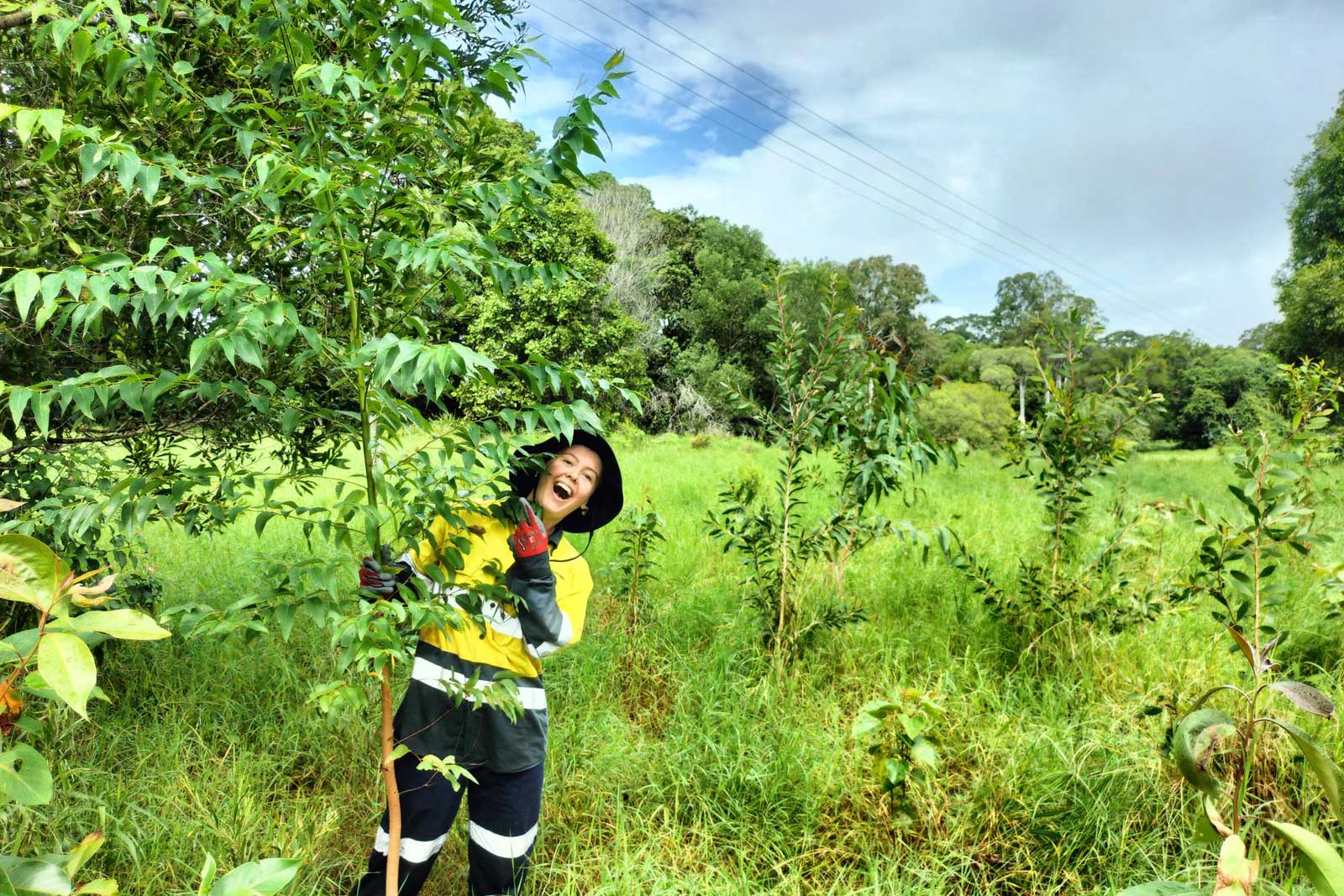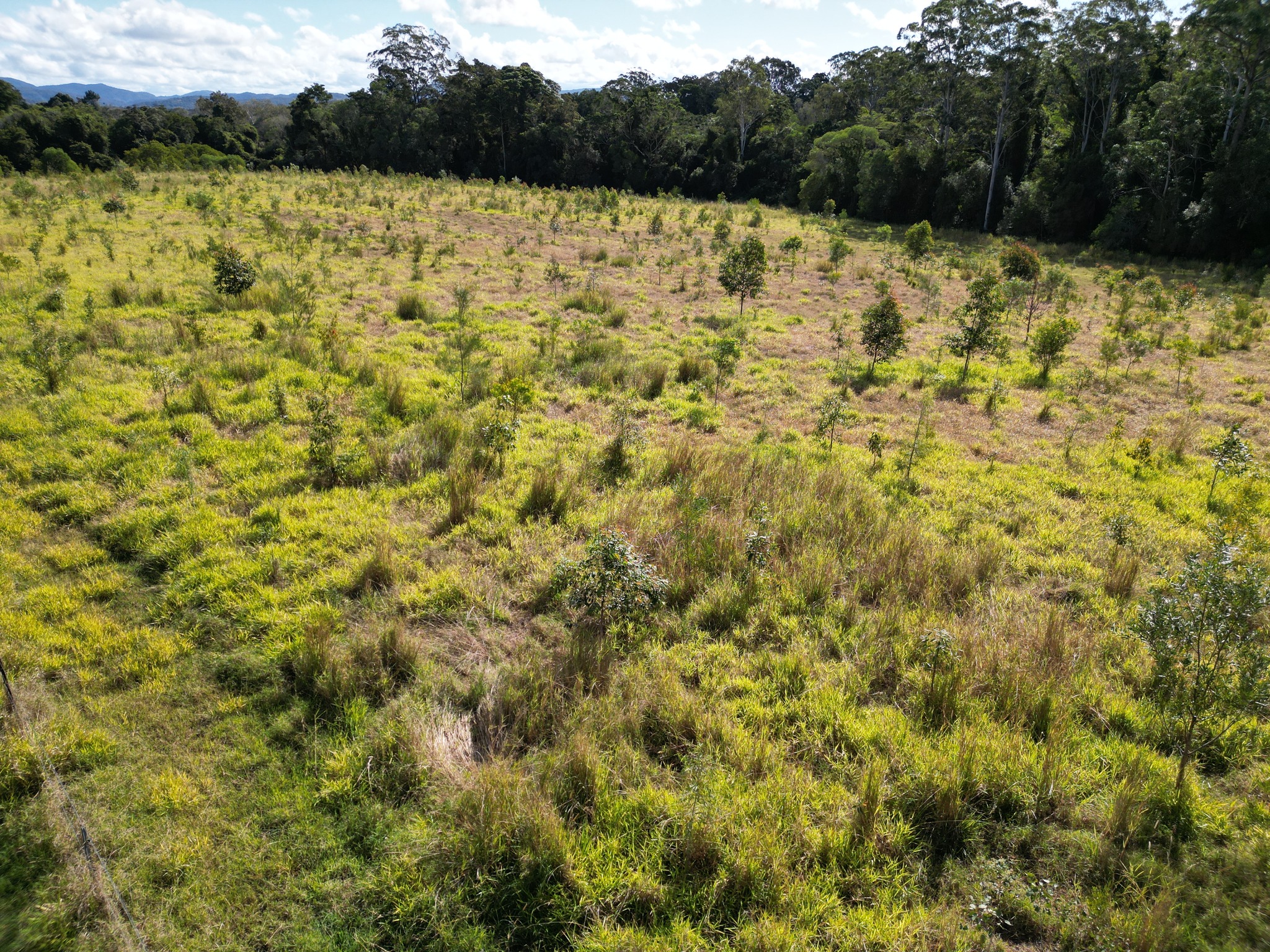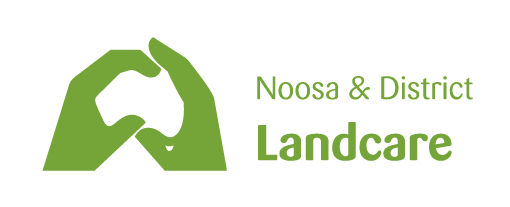Across the nation, but particularly in Queensland, koalas are in significant decline, mostly as a result of incremental habitat destruction and fragmentation and the effects this has on population health.
The Noosa community have recognised that protecting existing habitat, while important, is not enough to ensure the long-term survival of Australia’s most iconic and loved species. We need and want to rehabilitate vital corridors and strategic habitat to facilitate greater numbers and ensure the long-term genetic health of our remaining koala populations.
Noosa Landcare has created numerous partnerships to implement a range of restoration projects of various scales to support the health of Noosa’s koala populations. Below are a snapshot of some of the projects we have completed.
Yurol and Ringtail State Forest Koala Corridor

In 2019, Noosa Parks Association, Noosa Council and Queensland Government’s Department of Environment and Science purchased a timber plantation license of more than 2400ha of state forest in the Noosa Hinterland. The exit of harvesting and the rehabilitation of more than 1100ha of habitat back to its original vegetation type is underway.
Rehabilitation involves supported forest natural regeneration and the planting of more than 302,000 native trees, including koala food trees, to re-create the lowland to hinterland corridor link. Once rehabilitated, the area will be allocated as national park under the Nature Conservation Act 1992, securing protection and management into the future.
In the first phase of the project, 117ha of former pine plantation was revegetated by our teams, with the help from our community. This gained financial support from the Biobridge Project, a Body Shop UK initiative to help restore ‘bio-bridges’, or wildlife corridors, in damaged landscapes across the globe. This project helps endangered species to reconnect, mate and thrive as well as helping local communities to live more sustainably.
Body Shop Australia further supported the project, by doubling the funds granted by the Biobridge Project, through the sale of Limited-Edition Hemp Cream, koala turban head towels and koala headbands over the Christmas season 2018-2019.
Phase two welcomed Greenfleet and the Kabi Kabi Peoples Aboriginal Corporation as valuable partners to the project. So far, our crews have revegetated more than 160ha of harvested plantation areas within phase 2 area of the project. These works started in mid-2020 and will continue to run over four years.
Koala Carbon Habitat Restoration Project

The Dangerbridge property is a 279ha ex-macadamia and cattle farm located along Kin Kin Creek. It was dedicated to wildlife by becoming a nature refuge in 2010, when the owner decided to restore the property to its original vegetation communities and for it to become a safe haven for wildlife within the region, including threatened species like koalas and Richmond Birdwing Butterflies.
In 2021, many of owner Jenifer’s dreams for the property come true with the commencement of the Dangerbridge Nature Refuge Koala Carbon Habitat Restoration Project. In partnership with Greenfleet, Queensland Trust for Nature and the Queensland Government, Noosa Landcare began the transformation of 72ha of bare paddocks into a forest.
The aim of the restoration project is to establish emergent, canopy and understory species to restore natural canopy structure, and to capture carbon. Parallel to this objective is the desire to enhance the quality of the habitat for koalas by increasing koala food tree abundance and supporting koala habitat.
Over a four-year period, Noosa Landcare completed over 76ha of revegetation with 145,727 native tubestock planted. An additional 11ha underwent assisted natural regeneration through targeted weed management.

Planting progress late 2023.

